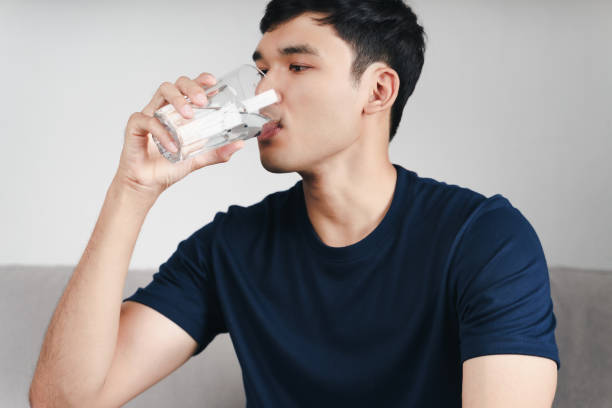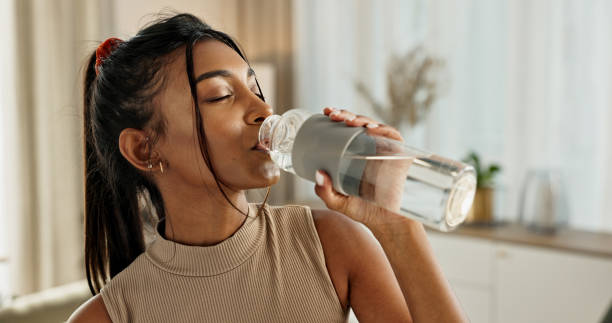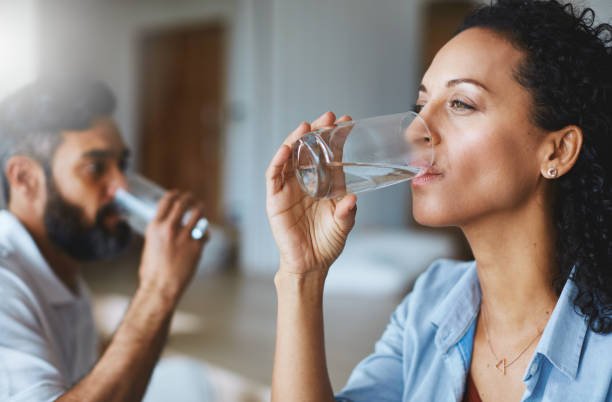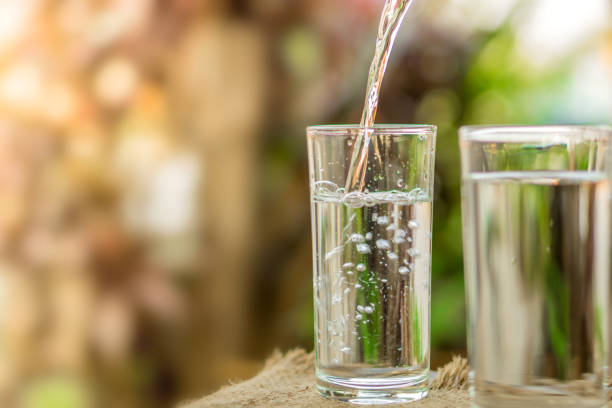Does Hydration Affect Your Erections? Yes—Here’s How
Water is essential for nearly every function in your body, including your ability to achieve and maintain an erection. If you often experience weak or inconsistent erections, dehydration might be playing a bigger role than you think.
Many men focus on diet, exercise, and supplements to improve their sexual health. While these factors are important, they may be overlooking a simple but crucial element: hydration. When your body lacks enough water, blood flow can slow down, energy levels can drop, and overall performance—including sexual function—may suffer.
In this article, we’ll explore how hydration directly affects erectile function, the science behind it, and why making water a priority in your daily routine can support a strong, healthy sex life.
The Link Between Dehydration and Erectile Dysfunction
Erections rely on strong blood flow, but dehydration can disrupt this process. When your body lacks enough water, blood volume decreases. This means your heart has to work harder to pump blood, and circulation slows down—including to the penis. Without proper blood flow, achieving and maintaining an erection becomes more difficult.
Dehydration can also lead to fatigue, dizziness, and mood changes, all of which can lower sexual performance. Additionally, it may cause an increase in stress hormones like cortisol, which can further interfere with arousal and erectile function. Staying hydrated supports healthy circulation, energy levels, and overall sexual health.

Key Ways Dehydration Affects Erections:
- Reduced Blood Volume: Less water means thicker blood, making circulation slower and weaker. When blood flow slows down, it becomes harder for your body to send enough blood to the penis, which can lead to difficulty achieving or maintaining an erection. Proper hydration keeps your blood at an optimal consistency, allowing it to flow freely to all areas of your body, including the genitals.
- Lower Energy Levels: Dehydration causes fatigue, reducing sexual stamina and interest. If you often feel tired or sluggish, dehydration may be the reason. Since sex requires both mental and physical energy, staying hydrated helps keep your stamina high and your mind alert, improving overall sexual performance.
- Hormonal Imbalance: Hydration helps regulate testosterone, the hormone responsible for sex drive and performance. Testosterone is crucial for male sexual health, and dehydration can interfere with the body’s ability to produce and maintain optimal levels of this hormone. Low testosterone is linked to a decreased sex drive and erectile dysfunction.
- Stress and Anxiety: Dehydration increases cortisol levels, which can interfere with arousal and erections. High cortisol levels, often caused by dehydration, can negatively impact testosterone production and lead to anxiety, both of which contribute to erection problems.
Signs of Dehydration That Could Impact Your Sexual Health
If you notice any of the following symptoms, dehydration might be affecting your erections:
- Dry mouth and chapped lips
- Dark yellow urine or infrequent urination
- Dizziness or headaches
- Muscle cramps
- Fatigue or brain fog
These warning signs mean your body needs more water. When dehydration is ignored, it can lead to long-term health problems, including chronic erectile dysfunction. Poor hydration can also affect digestion, kidney function, and immune health, making it even more important to drink enough water daily. Keeping your body hydrated supports circulation, energy levels, and overall sexual performance. function, which can all indirectly affect your sexual health.
How Much Water Should You Drink for Better Erections?
Most health experts recommend drinking at least 8 cups (64 ounces) of water per day. However, your ideal intake depends on factors like age, weight, activity level, and climate. A simple guideline is to drink half your body weight in ounces—for example, a 180-pound man should aim for around 90 ounces of water daily. Staying properly hydrated supports circulation, energy levels, and overall sexual health.

Additional Tips for Staying Hydrated
- Start your day with water instead of coffee. Your body loses fluids overnight, so drinking a glass of water first thing in the morning helps restore hydration levels and jumpstart your metabolism.
- Eat hydrating foods like cucumbers, watermelon, oranges, and lettuce. Many fruits and vegetables contain high amounts of water and provide essential nutrients that support overall health.
- Limit dehydrating drinks like alcohol and caffeine. Alcohol acts as a diuretic, increasing urine production and contributing to dehydration. While moderate caffeine intake is generally fine, excessive amounts can have a mild diuretic effect as well.
- Use a water tracking app to stay accountable. If you often forget to drink enough water, apps can send reminders and help you track your daily intake.
- Drink water before and after exercise. Physical activity leads to fluid loss through sweat, and replenishing those fluids supports muscle function, circulation, and endurance.
- Keep a water bottle with you throughout the day. Having water within reach serves as a constant reminder to stay hydrated and makes it easier to meet your daily goals.
By making hydration a priority, you can improve blood flow, boost energy levels, and support better erectile function.
Hydration vs. Other Erectile Dysfunction Causes
While dehydration can play a role in erection issues, it’s not the only factor. Several other common causes can affect sexual performance:
- Poor Diet: Eating too many processed foods, refined sugars, and trans fats can lead to weight gain, inflammation, and poor circulation. A diet lacking in essential nutrients can weaken blood vessel function, reducing blood flow to the penis.
- Lack of Exercise: A sedentary lifestyle increases the risk of heart disease and weakens circulation. Regular physical activity strengthens the cardiovascular system, improving blood flow and supporting healthier erectile function.
- Stress and Anxiety: Mental health has a direct impact on sexual performance. Chronic stress raises cortisol levels, which can interfere with arousal and cause psychological erectile dysfunction. Practicing mindfulness, meditation, or deep breathing exercises may help reduce stress and improve performance.
- Underlying Health Conditions: Conditions like diabetes, high blood pressure, and low testosterone can contribute to erectile dysfunction. These issues affect circulation, hormone levels, and nerve function, making it harder to achieve and maintain an erection.
- Smoking and Excessive Alcohol Use: Smoking damages blood vessels, leading to poor circulation, while excessive alcohol consumption can interfere with nerve function and hormone balance, both of which are essential for healthy sexual performance.
- Medications: Some prescription medications, including antidepressants, blood pressure medications, and certain painkillers, can have erectile dysfunction as a side effect.
If increasing your water intake doesn’t resolve the issue, consider speaking with a doctor to explore other possible causes. Addressing lifestyle factors and underlying health conditions can help improve erectile function and overall well-being.essing these underlying issues can significantly improve your overall sexual health.

The Bottom Line: Drink Water for a Stronger Sex Life
Your body needs water to function properly—including in the bedroom. Staying hydrated improves circulation, energy levels, and hormone balance, all of which are essential for healthy erections.
Additionally, proper hydration supports kidney function, digestion, and skin health, all of which contribute to your overall well-being. When your body is well-hydrated, you feel more energized, perform better physically, and experience improved cognitive function—all important for sexual health and intimacy.
If you’re experiencing erectile difficulties, try increasing your water intake and see if it makes a difference. Combine hydration with a balanced diet, regular exercise, and stress management for the best results.
Ready to Improve Your Sexual Health?
Start by drinking more water today! Have you noticed a difference in your performance after improving hydration? Share your thoughts in the comments below.

